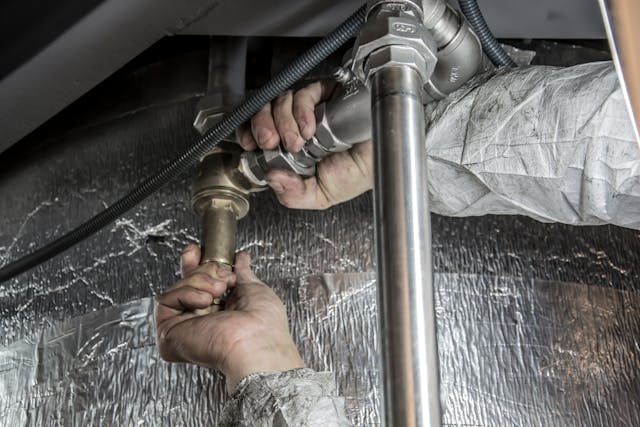California landlord-tenant law grants landlords the right to ask the tenant for a security deposit before moving in. By doing so, the landlord can shield themselves against possible financial losses arising from renting out the unit to negligent tenant.
However, California law obligates landlords who ask for security deposits to follow certain rules. Among other things, the landlord must charge the right deposit amount and return it within the required timeframe. The following is a basic overview of California security deposit laws:
Security Deposit Limit
California state law requires landlords not to exceed a certain limit during security deposit collection practices. That deposit limit is dependent upon whether the unit is furnished and unfurnished units. The landlord can only ask for a maximum security deposit limit of 3X the month's rentfor furnished rentals. For unfurnished units, the amount is capped at 2X of one month's rent.
One month's rent is typical amount asked for security deposits.
Storage Rules
As a landlord, it’s the landlords responsibility to store the tenant’s entire security deposit. Some states have rules on how landlords should go about doing it. However, for others like California, state law doesn’t include specific requirements for doing so.
The landlord can store the tenants money deposit anyway they like, whether in an interest-bearing account or a normal account like the one month's rent. There is also no requirement as to whether landlords can combine it with personal funds or keep it separate.

Security Deposit Receipt
California law doesn’t require landlords to provide their tenants with documentation acknowledging the receipt of their security deposit. Nevertheless, it’s standard practice among landlords to do so.
This is because proper record-keeping is always a good idea. Landlords must have written proof of when they received it, how much you received, and how you’re storing it.
Security Deposit Deductions
California law gives landlords the right to make appropriate deductions to a tenant’s deposit under certain circumstances. Landlords can make appropriate money deductions for the following reasons after the tenant moves out:
- Missed month's rent payments. If they move out without meeting their contractual month's rent payment obligations, the landlord can make appropriate deductions on their security deposit.
- Lost rent payments. If the tenant chooses to abandon their rental unit or break their lease without a legally justified reason, under the law the landlord may be able to recoup some of the losses by making deductions on their security deposit, avoiding small claims court.
- Cost of cleaning the rent unit. the landlord can also use part of the tenant’s security deposit to restore the rental unit to its original condition.
- Breaches to the lease agreement. Examples of such violations include unauthorized subletting, pet damage, and unauthorized rent unit alterations.
- Damage exceeding normal wear and tear.
As a landlord ensure you have proof of reason for deductions to avoid security deposit disputes.
Difference Between Damages and Normal Wear and Tear
Common examples of renting damage include:
- Large holes or excessive staining on the carpet
- Graffiti or peeling paints
- Cracked frames or broken glass on windows
- Deep scratches or burns on kitchen countertops
- Missing, cracked, or broken fixtures
- Burst pipes or clogged pipes lead to water damage

Examples of normal wear and tear include:
- Minor scratches or worn handles on windows
- Slight fading of the carpet due to normal use
- Minor scuffs or scratches on the paint
- Light stains or minor scratches on kitchen countertops
- Minor scratches on bathroom fixtures
- Light stains or minor scratches on kitchen countertops
- Slow drainage of the plumbing
Damage results from the tenant’s misuse, carelessness, or negligence. If the tenant moves out of the unit before fixing such type of damage, under california law,you can make appropriate deductions from their security deposits. Landlords are, however, responsible for damage resulting from normal wear and tear.
Walk-Through Inspection
As a landlord in California, whether to do a walk-through inspection or not is solely up to you. That said, it’s recommended to perform it to ascertain the condition of residentials rental properties before the tenant moves out.
From the inspection report, landlords also know whether or not the tenant is liable for any damage exceeding normal wear and tear for the deposit. With that in mind, you’ll need to adhere to the following rules during the inspection as per state law:
- Notify the tenant of your intention to perform a walk-through inspection at least 2 weeks before the end of the lease term under law.
- Notify the tenant at least 48 hours before the inspection, indicating the time and date of the inspection.
- Present the tenant with your findings before the final inspection.

Security Deposit Return
In California, landlords need to return part or all of their tenant’s security deposit within 21 days of them moving out. If returning the security deposit partially, you must provide the tenant with an itemized statement. In the statement, landlords must indicate the following things:
- The original security deposits amount you received.
- The itemized deductions.
- A good faith estimate of the projected costs of the repair work if the work is yet to be completed.
- The amount of security deposit you’re returning to the tenant after the deductions.
Sale of Rental Property
If selling residential rental properties, you’ll have two options when it comes to the tenant’s security deposit. One option is to transfer the security deposit, minus allowable deductions, to the incoming landlord. Landlords must then inform the tenant of the new landlord’s name and contact information.
The other option is to return the security deposits to the tenant, minus deductions. You must let the new residential landlord know of the amount returned to the tenant and what deductions you’ve taken.
Bottom Line
The California Security Deposit Law is an important legislation for landlords. Failure to follow these rules can have a repercussion on your reputation and your finances.
If you have a question or need help from a property management expert, look no further than Penny Realty, Inc. We offer full-service property management services to San Diego rent unit landlords and investors. Get in touch now!
Disclaimer: Please note that the information provided in this blog is intended for general guidance and should not be considered as a replacement for professional legal advice. It is important to be aware that laws pertaining to property management may change, rendering this information outdated by the time you read it.



